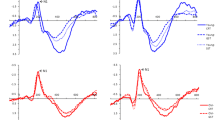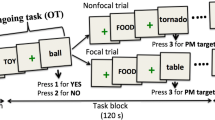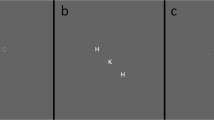Abstract
Previous research has reported reduced efficiency in reactive inhibition, along with reduced brain activations, in older adults. The current study investigated age-related behavioral and neural changes in proactive inhibition, and whether age may influence the relationship between proactive and reactive inhibition. One-hundred-and-forty-nine adults (18 to 72 years) underwent fMRI while performing a stop signal task (SST). Proactive inhibition was defined by the sequential effect, the correlation between the estimated probability of stop signal – p(Stop) – and go trial reaction time (goRT). P(Stop) was estimated trial by trial with a Bayesian belief model; reactive inhibition was defined by the stop signal reaction time (SSRT). Behaviorally the magnitude of sequential effect was not correlated with age, replicating earlier reports of spared proactive control in older adults. Age was associated with greater activations to p(Stop) in the lateral prefrontal cortex (PFC), paracentral lobule, superior parietal lobule, and cerebellum, and activations to goRT in the inferior occipital gyrus (IOG). Granger Causality analysis demonstrated that the PFC Granger caused IOG, with the PFC-IOG connectivity significantly correlated with p(Stop) in older but not younger adults. These findings suggest that the PFC and IOG activations and PFC-IOG connectivity may compensate for proactive control during aging. In contrast, while the activations of the ventromedial prefrontal cortex and caudate head to p(Stop) were negatively correlated with SSRT, relating proactive to reactive control, these activities did not vary with age. These findings highlighted distinct neural processes underlying proactive inhibition and limited neural plasticity to support cognitive control in the aging brain.




Similar content being viewed by others
References
Akaike, H. (1974). New look at statistical-model identification. Ieee Transactions on Automatic Control, Ac19(6), 716-723, https://doi.org/10.1109/Tac.1974.1100705.
Aron, A. R. (2011). From reactive to proactive and selective control: Developing a richer model for stopping inappropriate responses. Biological Psychiatry, 69(12), e55–e68. https://doi.org/10.1016/j.biopsych.2010.07.024.
Ashburner, J., & Friston, K. J. (1999). Nonlinear spatial normalization using basis functions. Human Brain Mapping, 7(4), 254–266. https://doi.org/10.1002/(SICI)1097-0193(1999)7:4<254::AID-HBM4>3.0.CO;2-G [pii].
Bloemendaal, M., Zandbelt, B., Wegman, J., van de Rest, O., Cools, R., & Aarts, E. (2016). Contrasting neural effects of aging on proactive and reactive response inhibition. Neurobiology of Aging, 46, 96–106. https://doi.org/10.1016/j.neurobiolaging.2016.06.007.
Braver, T. S. (2012). The variable nature of cognitive control: A dual mechanisms framework. Trends in Cognitive Sciences, 16(2), 106–113. https://doi.org/10.1016/j.tics.2011.12.010.
Braver, T. S., Satpute, A. B., Rush, B. K., Racine, C. A., & Barch, D. M. (2005). Context processing and context maintenance in healthy aging and early stage dementia of the Alzheimer's type. Psychology and Aging, 20(1), 33–46. https://doi.org/10.1037/0882-7974.20.1.33.
Buchel, C., Wise, R. J., Mummery, C. J., Poline, J. B., & Friston, K. J. (1996). Nonlinear regression in parametric activation studies. Neuroimage, 4(1), 60–66. https://doi.org/10.1006/nimg.1996.0029.
Buchel, C., Holmes, A. P., Rees, G., & Friston, K. J. (1998). Characterizing stimulus-response functions using nonlinear regressors in parametric fMRI experiments. Neuroimage, 8(2), 140–148. https://doi.org/10.1006/nimg.1998.0351.
Burianova, H., Lee, Y., Grady, C. L., & Moscovitch, M. (2013). Age-related dedifferentiation and compensatory changes in the functional network underlying face processing. Neurobiology of Aging, 34(12), 2759–2767. https://doi.org/10.1016/j.neurobiolaging.2013.06.016.
Cabeza, R., Anderson, N. D., Locantore, J. K., & McIntosh, A. R. (2002). Aging gracefully: Compensatory brain activity in high-performing older adults. Neuroimage, 17(3), 1394–1402.
Charles, S. T., Mather, M., & Carstensen, L. L. (2003). Aging and emotional memory: The forgettable nature of negative images for older adults. Journal of Experimental Psychology. General, 132(2), 310–324.
Cohen, M. S. (1997). Parametric analysis of fMRI data using linear systems methods. Neuroimage, 6(2), 93–103. https://doi.org/10.1006/nimg.1997.0278.
Davis, S. W., Dennis, N. A., Daselaar, S. M., Fleck, M. S., & Cabeza, R. (2008). Que PASA? The posterior-anterior shift in aging. Cerebral Cortex, 18(5), 1201–1209. https://doi.org/10.1093/cercor/bhm155.
Davis, S. W., Kragel, J. E., Madden, D. J., & Cabeza, R. (2012). The architecture of cross-hemispheric communication in the aging brain: Linking behavior to functional and structural connectivity. Cerebral Cortex, 22(1), 232–242. https://doi.org/10.1093/cercor/bhr123.
Daw, N. D., O'Doherty, J. P., Dayan, P., Seymour, B., & Dolan, R. J. (2006). Cortical substrates for exploratory decisions in humans. Nature, 441(7095), 876–879. https://doi.org/10.1038/nature04766.
Della-Maggiore, V., Chan, W., Peres-Neto, P. R., & McIntosh, A. R. (2002). An empirical comparison of SPM preprocessing parameters to the analysis of fMRI data. Neuroimage, 17(1), 19–28. https://doi.org/10.1006/nimg.2002.1113.
Dennis, N. A., Hayes, S. M., Prince, S. E., Madden, D. J., Huettel, S. A., & Cabeza, R. (2008). Effects of aging on the neural correlates of successful item and source memory encoding. Journal of Experimental Psychology. Learning, Memory, and Cognition, 34(4), 791–808. https://doi.org/10.1037/0278-7393.34.4.791.
Deshpande, G., Hu, X., Stilla, R., & Sathian, K. (2008). Effective connectivity during haptic perception: A study using Granger causality analysis of functional magnetic resonance imaging data. Neuroimage, 40(4), 1807–1814. https://doi.org/10.1016/j.neuroimage.2008.01.044.
Deshpande, G., LaConte, S., James, G. A., Peltier, S., & Hu, X. (2009). Multivariate Granger causality analysis of fMRI data. Human Brain Mapping, 30(4), 1361–1373. https://doi.org/10.1002/hbm.20606.
Ding, M., Bressler, S. L., Yang, W., & Liang, H. (2000). Short-window spectral analysis of cortical event-related potentials by adaptive multivariate autoregressive modeling: Data preprocessing, model validation, and variability assessment. Biological Cybernetics, 83(1), 35–45. https://doi.org/10.1007/s004229900137.
Duann, J. R., Ide, J. S., Luo, X., & Li, C. R. (2009). Functional connectivity delineates distinct roles of the inferior frontal cortex and presupplementary motor area in stop signal inhibition. J Neurosci, 29(32), 10171-10179, https://doi.org/10.1523/Jneurosci.1300-09.2009.
Friston, K., Holmes, A. P., Worsley, K. J., Poline, J. B., Frith, C. D., & Frackowiak, R. (1995a). Statistical parametric maps in functional imaging: A general linear approach. Human Brain Mapping, 2, 189–210.
Friston, K. J., Ashburner, J., Frith, C. D., Poline, J. B., Heather, J. D., & Frackowiak, R. S. J. (1995b). Spatial registration and normalization of images. Human Brain Mapping, 3(3), 165–189.
Friston, K. J., Josephs, O., Zarahn, E., Holmes, A. P., Rouquette, S., & Poline, J. B. (2000). To smooth or not to smooth? Bias and efficiency in fMRI time-series analysis. Neuroimage, 12(2), 196–208.
Geerligs, L., Saliasi, E., Maurits, N. M., & Lorist, M. M. (2012). Compensation through increased functional connectivity: Neural correlates of inhibition in old and young. Journal of Cognitive Neuroscience, 24(10), 2057–2069. https://doi.org/10.1162/jocn_a_00270.
Genovese, C. R., Lazar, N. A., & Nichols, T. (2002). Thresholding of statistical maps in functional neuroimaging using the false discovery rate. Neuroimage, 15(4), 870–878. https://doi.org/10.1006/nimg.2001.1037.
Geweke, J. (1982). Measurement of linear-dependence and feedback between multiple time-series. J Am Stat Assoc, 77(378), 304-313, https://doi.org/10.2307/2287238.
Goebel, R., Roebroeck, A., Kim, D. S., & Formisano, E. (2003). Investigating directed cortical interactions in time-resolved fMRI data using vector autoregressive modeling and Granger causality mapping. Magnetic Resonance Imaging, 21(10), 1251–1261.
Granger, C. W. J. (1969). Investigating causal relations by econometric models and cross-spectral methods. Econometrica, 37(3), 424–438.
Hakun, J. G., Zhu, Z., Brown, C. A., Johnson, N. F., & Gold, B. T. (2015). Longitudinal alterations to brain function, structure, and cognitive performance in healthy older adults: A fMRI-DTI study. Neuropsychologia, 71, 225–235. https://doi.org/10.1016/j.neuropsychologia.2015.04.008.
Hamilton, J. D. (1994). Time series analysis. Princeton, NJ: Princeton University Press.
Hesterberg, T., Moore, D.S., Monaghan, S., Clipson, A. R. E, (2005). Bootstrap methods and permutation tests. In D. S. Moore, G.P. M (Ed.), Introduction to the Practice of Statistics, 5th Edition. (pp. 14.11–14.70.): WH Freeman & Co, New York, .
Hsieh, S., & Lin, Y. C. (2017a). Stopping ability in younger and older adults: Behavioral and event-related potential. Cogn Affect Behav Neurosci, 17(2), 348-363, https://doi.org/10.3758/s13415-016-0483-7; https://doi.org/10.3758/s13415-016-0483-7 [pii].
Hsieh, S., & Lin, Y. C. (2017b). Strategies for stimulus selective stopping in the elderly. Acta Psychologica, 173, 122–131. https://doi.org/10.1016/j.actpsy.2016.12.011.
Hu, S., Chao, H. H., Winkler, A. D., & Li, C. S. (2012). The effects of age on cerebral activations: Internally versus externally driven processes. Frontiers in Aging Neuroscience, 4, 4. https://doi.org/10.3389/fnagi.2012.00004.
Hu, S., Tseng, Y. C., Winkler, A. D., & Li, C. S. (2014). Neural bases of individual variation in decision time. Human Brain Mapping, 35(6), 2531–2542. https://doi.org/10.1002/hbm.22347.
Hu, S., Ide, J. S., Zhang, S., & Li, C. S. (2015). Anticipating conflict: Neural correlates of a Bayesian belief and its motor consequence. Neuroimage, 119, 286–295. https://doi.org/10.1016/j.neuroimage.2015.06.032.
Hu, S., Ide, J. S., Zhang, S., & Li, C. R. (2016). The right superior frontal gyrus and individual variation in proactive control of impulsive response. The Journal of Neuroscience, 36(50), 12688–12696. https://doi.org/10.1523/JNEUROSCI.1175-16.2016.
Hu, S., Ide, J. S., Chao, H. H., Castagna, B., Fischer, K. A., Zhang, S., & Li, C. S. R. (2018). Structural and functional cerebral bases of diminished inhibitory control during healthy aging. Human Brain Mapping, 39, 5085–5096. https://doi.org/10.1002/hbm.24347.
Ide, J. S., & Li, C. S. (2011). Error-related functional connectivity of the habenula in humans. Frontiers in Human Neuroscience, 5, 25. https://doi.org/10.3389/fnhum.2011.00025.
Ide, J. S., Shenoy, P., Yu, A. J., & Li, C. S. (2013). Bayesian prediction and evaluation in the anterior cingulate cortex. The Journal of Neuroscience, 33(5), 2039–2047. https://doi.org/10.1523/JNEUROSCI.2201-12.2013.
Jahanshahi, M., Obeso, I., Rothwell, J. C., & Obeso, J. A. (2015). A fronto-striato-subthalamic-pallidal network for goal-directed and habitual inhibition. Nature Reviews. Neuroscience, 16(12), 719–732. https://doi.org/10.1038/nrn4038.
Jimura, K., & Braver, T. S. (2010). Age-related shifts in brain activity dynamics during task switching. Cerebral Cortex, 20(6), 1420–1431. https://doi.org/10.1093/cercor/bhp206.
Kaminski, M., Ding, M., Truccolo, W. A., & Bressler, S. L. (2001). Evaluating causal relations in neural systems: Granger causality, directed transfer function and statistical assessment of significance. Biological Cybernetics, 85(2), 145–157. https://doi.org/10.1007/s004220000235.
Kenemans, J. L. (2015). Specific proactive and generic reactive inhibition. Neuroscience and Biobehavioral Reviews, 56, 115–126. https://doi.org/10.1016/j.neubiorev.2015.06.011.
Kleerekooper, I., van Rooij, S. J., van den Wildenberg, W. P., de Leeuw, M., Kahn, R. S., & Vink, M. (2016). The effect of aging on fronto-striatal reactive and proactive inhibitory control. Neuroimage, 132, 51–58. https://doi.org/10.1016/j.neuroimage.2016.02.031.
Kus, R., Kaminski, M., & Blinowska, K. J. (2004). Determination of EEG activity propagation: Pair-wise versus multichannel estimate. IEEE Transactions on Biomedical Engineering, 51(9), 1501–1510. https://doi.org/10.1109/TBME.2004.827929.
Levitt, H. (1971). Transformed up-down methods in psychoacoustics. The Journal of the Acoustical Society of America, 49(2), 467–477.
Li, L., & Zhao, D. (2015). Age-related inter-region EEG coupling changes during the control of bottom-up and top-down attention. Frontiers in Aging Neuroscience, 7, 223. https://doi.org/10.3389/fnagi.2015.00223.
Li, H. J., Hou, X. H., Liu, H. H., Yue, C. L., Lu, G. M., & Zuo, X. N. (2015). Putting age-related task activation into large-scale brain networks: A meta-analysis of 114 fMRI studies on healthy aging. Neuroscience and Biobehavioral Reviews, 57, 156–174. https://doi.org/10.1016/j.neubiorev.2015.08.013.
Logan, G. D., Cowan, W. B., & Davis, K. A. (1984). On the ability to inhibit simple and choice reaction-time responses – A model and a method. Journal of Experimental Psychology. Human Perception and Performance, 10(2), 276–291.
Michely, J., Volz, L. J., Hoffstaedter, F., Tittgemeyer, M., Eickhoff, S. B., Fink, G. R., & Grefkes, C. (2018). Network connectivity of motor control in the ageing brain. Neuroimage Clin, 18, 443–455. https://doi.org/10.1016/j.nicl.2018.02.001.
O'Doherty, J., Dayan, P., Schultz, J., Deichmann, R., Friston, K., & Dolan, R. J. (2004). Dissociable roles of ventral and dorsal striatum in instrumental conditioning. Science, 304(5669), 452–454. https://doi.org/10.1126/science.1094285.
Park, D. C., & Reuter-Lorenz, P. (2009). The adaptive brain: Aging and neurocognitive scaffolding. Annual Review of Psychology, 60, 173–196. https://doi.org/10.1146/annurev.psych.59.103006.093656.
Peelle, J. E., Chandrasekaran, K., Powers, J., Smith, E. E., & Grossman, M. (2013). Age-related vulnerability in the neural systems supporting semantic processing. Frontiers in Aging Neuroscience, 5, 46. https://doi.org/10.3389/fnagi.2013.00046.
Phillips, L. H., & Andres, P. (2010). The cognitive neuroscience of aging: New findings on compensation and connectivity. Cortex, 46(4), 421–424. https://doi.org/10.1016/j.cortex.2010.01.005.
Reuter-Lorenz, P. A., & Park, D. C. (2010). Human neuroscience and the aging mind: A new look at old problems. The Journals of Gerontology. Series B, Psychological Sciences and Social Sciences, 65(4), 405–415. https://doi.org/10.1093/geronb/gbq035.
Roebroeck, A., Formisano, E., & Goebel, R. (2005). Mapping directed influence over the brain using Granger causality and fMRI. Neuroimage, 25(1), 230–242. https://doi.org/10.1016/j.neuroimage.2004.11.017.
Rybash, J. M., & Osborne, J. L. (1991). Implicit memory, the serial position effect, and test awareness. Bulletin of the Psychonomic Society, 29(4), 327–330.
Sala-Llonch, R., Bartres-Faz, D., & Junque, C. (2015). Reorganization of brain networks in aging: A review of functional connectivity studies. Frontiers in Psychology, 6, 663. https://doi.org/10.3389/fpsyg.2015.00663.
Samrani, G., Backman, L., & Persson, J. (2017). Age-differences in the temporal properties of proactive interference in working memory. Psychology and Aging, 32(8), 722–731. https://doi.org/10.1037/pag0000204.
Seth, A. K. (2010). A MATLAB toolbox for Granger causal connectivity analysis. Journal of Neuroscience Methods, 186(2), 262–273. https://doi.org/10.1016/j.jneumeth.2009.11.020.
Seth, A. K., Barrett, A. B., & Barnett, L. (2015). Granger causality analysis in neuroscience and neuroimaging. The Journal of Neuroscience, 35(8), 3293–3297. https://doi.org/10.1523/JNEUROSCI.4399-14.2015.
Smittenaar, P., Rutledge, R. B., Zeidman, P., Adams, R. A., Brown, H., Lewis, G., & Dolan, R. J. (2015). Proactive and reactive response inhibition across the lifespan. PLoS One, 10(10), e0140383. https://doi.org/10.1371/journal.pone.0140383 PONE-D-15-18650 [pii].
Spreng, R. N., Wojtowicz, M., & Grady, C. L. (2010). Reliable differences in brain activity between young and old adults: A quantitative meta-analysis across multiple cognitive domains. Neuroscience and Biobehavioral Reviews, 34(8), 1178–1194. https://doi.org/10.1016/j.neubiorev.2010.01.009.
St Jacques, P. L., Dolcos, F., & Cabeza, R. (2009). Effects of aging on functional connectivity of the amygdala for subsequent memory of negative pictures: A network analysis of functional magnetic resonance imaging data. Psychological Science, 20(1), 74–84. https://doi.org/10.1111/j.1467-9280.2008.02258.x.
St Jacques, P. L., Botzung, A., Miles, A., & Rubin, D. C. (2011). Functional neuroimaging of emotionally intense autobiographical memories in post-traumatic stress disorder. Journal of Psychiatric Research, 45(5), 630–637. https://doi.org/10.1016/j.jpsychires.2010.10.011.
Stilla, R., Deshpande, G., LaConte, S., Hu, X., & Sathian, K. (2007). Posteromedial parietal cortical activity and inputs predict tactile spatial acuity. The Journal of Neuroscience, 27(41), 11091–11102. https://doi.org/10.1523/JNEUROSCI.1808-07.2007.
Theiler, J., Eubank, S., Longtin, A., Galdrikian, B., & Farmer, J. D. (1992). Testing for nonlinearity in time-series - the method of surrogate data. Physica D, 58(1-4), 77-94, https://doi.org/10.1016/0167-2789(92)90102-S.
Uddin, L. Q., Kinnison, J., Pessoa, L., & Anderson, M. L. (2014). Beyond the tripartite cognition-emotion-interoception model of the human insular cortex. Journal of Cognitive Neuroscience, 26(1), 16–27. https://doi.org/10.1162/jocn_a_00462.
van de Laar, M. C., van den Wildenberg, W. P., van Boxtel, G. J., & van der Molen, M. W. (2011). Lifespan changes in global and selective stopping and performance adjustments. Frontiers in Psychology, 2, 357. https://doi.org/10.3389/fpsyg.2011.00357.
Wei, L., Li, Y., & Cao, D. (2014). The function coupling in young adults, old controls and old cognitively declined adults. In 2014 7th international conference on BioMedical engineering and informatics (BMEI 2014) (pp. 388–392).
Wen, X., Yao, L., Liu, Y., & Ding, M. (2012). Causal interactions in attention networks predict behavioral performance. The Journal of Neuroscience, 32(4), 1284–1292. https://doi.org/10.1523/JNEUROSCI.2817-11.2012.
Wen, X., Liu, Y., Yao, L., & Ding, M. (2013a). Top-down regulation of default mode activity in spatial visual attention. The Journal of Neuroscience, 33(15), 6444–6453. https://doi.org/10.1523/JNEUROSCI.4939-12.2013.
Wen, X., Rangarajan, G., & Ding, M. (2013b). Is Granger causality a viable technique for analyzing fMRI data? PLoS One, 8(7), e67428. https://doi.org/10.1371/journal.pone.0067428.
Wessel, J. R., & Aron, A. R. (2017). On the globality of motor suppression: Unexpected events and their influence on behavior and cognition. Neuron, 93(2), 259–280. https://doi.org/10.1016/j.neuron.2016.12.013.
Wetherill, G. B., Chen, H., & Vasudeva, R. B. (1966). Sequential estimation of quantal response curves: A new method of estimation. Biometrika, 53(3/4), 439–454.
Wilson, S. M., Isenberg, A. L., & Hickok, G. (2009). Neural correlates of word production stages delineated by parametric modulation of psycholinguistic variables. Human Brain Mapping, 30(11), 3596–3608. https://doi.org/10.1002/hbm.20782.
Xiang, L., Zhang, B., Wang, B., Jiang, J., Zhang, F., & Hu, Z. (2016). The effect of aging on the dynamics of reactive and proactive cognitive control of response interference. Frontiers in Psychology, 7, 1640. https://doi.org/10.3389/fpsyg.2016.01640.
Yu, A. J., & Cohen, J. D. (2009). Sequential effects: Superstition or rational behavior? In D. Koller, Schuurmans, D., Bengio, Y., Bottou, L. (Ed.), NIPS 2008, Adv Neural Inf Process Syst (Vol. 21st ed, pp. 1873-1880). Vancouver: MIT.
Yu, A. J., Dayan, P., & Cohen, J. D. (2009). Dynamics of attentional selection under conflict: Toward a rational Bayesian account. J Exp Psychol Hum Percept Perform, 35(3), 700-717, https://doi.org/10.1037/A0013553.
Zandbelt, B. B., Bloemendaal, M., Neggers, S. F., Kahn, R. S., & Vink, M. (2013). Expectations and violations: Delineating the neural network of proactive inhibitory control. Human Brain Mapping, 34(9), 2015–2024. https://doi.org/10.1002/hbm.22047.
Zar, J. H. (1999). Biostatistical analysis (4th ed.). Upper Saddle River, NJ: Prentice-Hall.
Acknowledgements
This study is supported by National Institutes of Health grants DA023248, AA021449, MH113134, and CA218501 as well as a VA Merit Award CX001301. The content is solely the responsibility of the authors and does not necessarily represent the official views of the National Institutes of Health or the VA. We thank Dr. Jaime Ide for many helpful discussions.
Author information
Authors and Affiliations
Corresponding author
Ethics declarations
Conflict of interest
Author C-S.R. Li has received research grants from NIH (DA023248, AA021449, and MH113134) and he declares no conflict of interest. Author H.H. Chao has received research grants from the NIH (CA218501) and VA (VA Merit Award CX001301) and she declares no conflict of interest.
Ethical approval
All procedures performed in studies involving human participants were in accordance with the ethical standards of the institutional and/or national research committee and with the 1964 Helsinki declaration and its later amendments or comparable ethical standards.
Informed consent
All participants signed a written consent after given a detailed explanation of the study in accordance with a protocol approved by the Yale Human Investigation Committee.
Additional information
Publisher’s note
Springer Nature remains neutral with regard to jurisdictional claims in published maps and institutional affiliations.
Rights and permissions
About this article
Cite this article
Hu, S., Job, M., Jenks, S.K. et al. Imaging the effects of age on proactive control in healthy adults. Brain Imaging and Behavior 13, 1526–1537 (2019). https://doi.org/10.1007/s11682-019-00103-w
Published:
Issue Date:
DOI: https://doi.org/10.1007/s11682-019-00103-w




